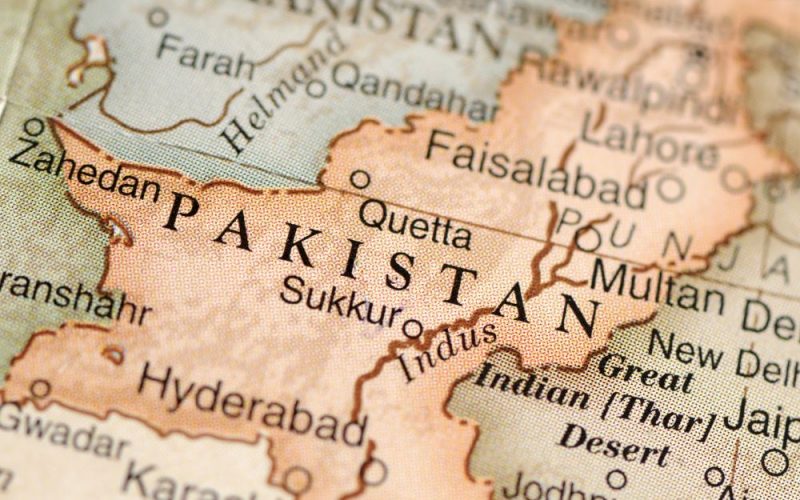I am often astounded by the amount of religiosity on display in the present day Pakistan.

The realization dawned on me some two and a half years ago when I was jolted into confronting the reality as Salman Taseer was assassinated by his own guard in broad daylight and under the applauding gaze of a majority of the nation. It was a shock, an eye-opener for me – this was not the Pakistan I had known. It revealed to me the depth of c drift. I reckoned around me that Mumtaz Qadri is not just a man — he’s a mindset. Extremism permeates all strata and socio-economic groups within the society. Violent extremists may still make up a minority but extremism now enjoys popular support. Gun-trotting zealots apart, religiosity in my country is now extremely stifling, pervasive, and grating. The myth of a ‘silent majority’ of moderates created by Musharraf and his admirers stands fully evaporated.


In some respects it is consistent with the international trend, especially across the Muslim world. Its roots hark back to the era of cold war where religion was thought as the best way to fortify the then Third World against the spread of communism. Then at least a few major events took place during the late seventies. The first was Zia ul Haq’s ascension to power in Pakistan. The second was the Islamic Revolution in Iran which galvanised the Islamists all around the world. No wonder Shias were particularly influenced. The third and probably the most important was the Soviet invasion of Afghanistan. This turned jihadists of all ilks into the darlings of the West and started a love affair between the Muslim fundamentalists and the West which, even though it lasted for less than two decades, was to reshape the world for ever. While Shias were spurred by the Iranian revolution, Western sponsorship of Saudi Arabia and Jihadis –for its aims in Afghanistan and Middle East- concentrated unprecedented power and resources in the hands of Salafi ideologues and organizations. Amidst other things, in Pakistan this has also resulted in considerable marginalization of mainstream Sunnis (sometimes referred to as Bralevis in the subcontinent) who in my experience were the least intolerant of the various major Muslim sects in the subcontinent. (Not any more though, as the man who killed Salman Taseer was a Bralevi.)

Anyway, today’s Pakistan is a far cry from the Pakistan I grew up in. I have been a first hand witness to the metamorphosis that has taken place over the past over thirty years. Although Mullahs –abetted and used by the unpopular rulers of the country and Pakistan Army- had started making inroads right from the time of its creation, Pakistan of up to seventies was a liberal and a peaceful country where sectarian divides were far less palpable than differences along ethnic or even political lines. I always grew up in multi-sect environments (comprising Bralevis, Deobandis, Shias, and Ahle-Hadith, and also Ismailis, Bohras, Ahmedis, and the then minorities alike) and while as we grew up we became aware of the existence of various schools of thought, we would never witness the kind of intolerance that is rife today. Religion, or the practice of it, was pretty much an individual business as if the society, like other human societies, lived up to the notions of spirituality being a human need. Then Zia’s missionary fervour backed by Saudi riches transformed the landscape. As Ayaz Amir once wrote: “Backed by state patronage, mullah power, hitherto not much of a factor in Pakistani politics, began to show its muscles. There was a ban on politics in any case. Apart from PTV, there was no other TV channel and even PTV was being conquered by the mullahs. Newspapers lay under a heavy blanket of censorship. The only thing to do under Zia was to either watch Indian movies at home or perform the various rituals of religious hypocrisy in public. The begums of the good and great, never behind their men folk in bowing to the prevailing wings, entered heavily into the business of arranging religious ceremonies (milads) under one pretext or another. Pakistan became a very pious and hypocritical society. Even army promotions began to be affected by one’s reputation for religious observance or otherwise.” Zia’s idea clearly was to increase Islamic traditions’ popular appeal by converting them into displays of piety and power imagery.


While the Army always used Mullah for its aims, in the post-Zia era the secular politicians have also pandered to the religious zealots. Both Benazir Bhutto and Nawaz Sharif co-opted the clergy and abstained from taking measures towards stopping the growing tide of religious fundamentalism. Pervez Musharraf and his ISI continued to play a double game, using the holy fathers for their purpose. Asif Zardari then shamelessly presided over an unprecedented proliferation of Islamic militancy in Pakistan. Hence the majority in Pakistan now subscribes to pan-Islamist, anti-American, anti-Indian and anti-Israeli ideas and conspiracy theories, even though a significant minority continues to abhor Islamist violence and sees fighting extremism and win-win relations with India and the US to be in the national interest.

It is interesting to note though that the rise of religiosity has had no impact on the moral fabric of the population as the corruption remains as high (if not higher) as it was thirty years ago, the greed is more rampant than at any moment in our history and continues to rise, most national institutions have degenerated, social injustice increases day after day, law and order has deteriorated beyond the worst one could have imagined thirty years ago etc. Very few overtly religious people sincerely attempt to turn their faith in to a force to ensure an honest and lawful conduct. It is amazing that people whose religious belief inspires no confidence that an individual’s life on earth is beneficent continue to plunder and do wrong by others with impunity. While I suffered my share of hell-fire lectures, the religion of my childhood did not appear as frightening as that of today that brandishes Hell as a closer reality than the God itself. My interest in religion was not driven by fear and though God seemed distant I always thought I could feel Him. Calling ‘Ramzan’ ‘Ramadan’ and using ‘Allah Hafiz’ instead of ‘Khuda Hafiz’ did not constitute manifestations of faith. Islam is not a divine command to Arabize humanity or an attempt to reduce the rich cultural diversity of its adherents worldwide into a dull cultural standardization. It would not be correct to associate Islam thoroughly with any culture. Islam, like other universal religions, is above cultures. The fact is that Islam became global very quickly after its advent, much faster than any other religion. Therefore I find any attempt to ignore the cultural plurality of Islam by portraying Peninsular Arabia as its cultural centre belittling to a truly global Islamic civilization. For reasons too complex to be addressed in this space, this drift is more apparent in Pakistan than in most other countries as Muslims from other diverse cultures like Senegal, Iran, Indonesia, and even India seem much more at peace with their heritage within the fold of Islam. All of these Islamic cultures are equally Islamic as Islam, over a period of time, has interacted and reshaped these cultures inclusively from within. The Quran is universal in its appeal thus ensuring that Islam is essentially interactive with and inclusive of different cultures rather than being particularly attached to a specific human group or geography, instead, all human communities in the world should be able to easily and genuinely relate to Islam. Islam is a progressive civilization whose dynamism and diversity need to be acknowledged and not suppressed by the dubious calls for return to the practices of medieval times and allegiance to rituals and appearances that are peculiar to one culture.

Religiosity also spins conspiracy theories and their subscribers usually believe that Muslims are perfect and this in turn means that they are not taught on how self-assessment as a Muslim is important. There is no dearth of the people in our midst who claim that the world is bad and Muslims are the best and that the former needs to reform itself. This attitude breeds intolerance and the growth of intolerance over the more recent decades of our existence has outstripped that of economy, literacy, population, corruption, graft, nepotism and everything else. To me this intolerance bred by religiosity is what best defines our society and our biggest problem.

Sectarian differences are on the rise. As Iqbal said, Muslims have always been lost in the history and fighting over the past and even today I see hordes of young folks subscribing to different religious orders and accepting the man-made interpretations without question. In most cases the allegiance to sectarian schism is indelibly indoctrinated in early childhood. These sectarian doctrines have been constructed over centuries and are mostly mired in history. In no religion in the history of mankind have such minor differences in fundamental beliefs led to so much mayhem and bloodshed. Instead, what human race continues to outgrow we keep on reliving. Burdened by an unpleasant and divisive history, sectarian harmony staggers under impossible difficulties as many Muslims find it more passionate and intense to delve in the narrations of history rather than coming together to use the basic tenets of Islam to deal with the modern challenges. Everything that Islam and the Quran point to –absolute goodness, peace, service to others, truthfulness, honesty, justice- has slowly but surely diminished in Pakistani culture.








